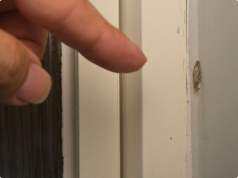Let’s talk about something everyone does but few want to discuss: farting.
Also known as flatulence, passing gas is a completely normal and natural part of digestion. On average, a person farts 14 to 25 times a day — and that’s perfectly healthy. Gas builds up as your gut bacteria break down food, and releasing it is your body’s way of relieving pressure.
But what if you’re on the higher end — or even exceeding 25 farts a day?
While occasional gas is normal, excessive flatulence — especially when paired with bloating, pain, or changes in bowel habits — can be a sign that something in your digestive system needs attention.
What Is Farting, Exactly?
Farting is the release of gas from the digestive tract through the rectum. This gas comes from two main sources:
- Swallowed air (from eating, drinking, or talking while chewing)
- Gas produced by gut bacteria as they ferment undigested food in the colon
The typical composition of flatus includes:
- Nitrogen
- Hydrogen
- Carbon dioxide
- Methane
- Small amounts of sulfur compounds (the source of the odor)
It’s not the act of farting that’s concerning — it’s the frequency, smell, and accompanying symptoms that may point to an underlying issue.
Is Farting More Than 25 Times a Day Normal?
While the upper limit of normal is around 25 times per day, going beyond that isn’t automatically dangerous — but it can signal digestive imbalance.
If you’re farting constantly — especially if it’s loud, smelly, or accompanied by discomfort — it’s worth investigating the cause.
⚠️ Common Causes of Excessive Farting
1. Diet: The Usual Suspects
Certain foods are notorious for gas production:
- Beans, lentils, and legumes – High in fiber and complex sugars (raffinose) that gut bacteria ferment.
- Cruciferous veggies – Broccoli, cabbage, cauliflower, and Brussels sprouts.
- Onions and garlic – Contain fructans, a type of FODMAP.
- Sugar alcohols – Sorbitol, xylitol, mannitol (found in sugar-free gum and candies).
- Dairy products – If you’re lactose intolerant, undigested lactose ferments in the gut, causing gas.
- High-fructose foods – Including high-fructose corn syrup and certain fruits.
2. Swallowing Too Much Air (Aerophagia)
You might be inhaling more air than you realize:
- Chewing gum
- Drinking through straws
- Eating too quickly
- Talking while eating
- Smoking or vaping
This air doesn’t just come back up as burps — much of it travels through the digestive tract and exits as flatulence.
3. Food Intolerances
Your body may struggle to digest certain carbohydrates:
- Lactose intolerance – Lack of lactase enzyme.
- Gluten sensitivity or celiac disease – Can cause bloating and gas.
- FODMAP intolerance – Fermentable sugars in foods like apples, wheat, and dairy.
4. Digestive Disorders
Frequent gas can be a symptom of a deeper condition:
- Irritable Bowel Syndrome (IBS) – One of the most common causes of chronic gas, bloating, and altered bowel habits.
- Small Intestinal Bacterial Overgrowth (SIBO) – Excess bacteria in the small intestine ferment food too early, producing gas.
- Pancreatic insufficiency – Poor digestion of fats and proteins leads to fermentation.
- GERD (acid reflux) – Can cause increased swallowing, leading to more trapped air.
5. Medications & Supplements
Some common drugs and supplements can increase gas:
- Antibiotics – Disrupt gut microbiome balance.
- Metformin – A diabetes medication known to cause gas and bloating.
- Fiber supplements – Psyllium, inulin, and others feed gut bacteria (which is good — but can cause gas at first).
🩺 When to See a Doctor
Farting a lot isn’t always a medical issue — but if you experience any of the following, it’s time to consult a healthcare provider:
- Persistent bloating or abdominal pain
- Diarrhea, constipation, or alternating bowel habits
- Unintentional weight loss
- Blood in your stool
- Fatigue or anemia
- Sudden onset after a dietary or medication change
These could be signs of IBS, SIBO, celiac disease, or other gastrointestinal conditions that need diagnosis and treatment.
✅ How to Reduce Excessive Gas
You don’t have to live with constant flatulence. Try these science-backed strategies:
1. Keep a Food Diary
Track what you eat and when gas occurs. Look for patterns — you might spot a trigger within days.
2. Try a Low-FODMAP Diet (Under Guidance)
This elimination diet removes fermentable carbs that cause gas. Many with IBS see dramatic improvement. Reintroduce foods slowly to identify triggers.
3. Eat Slowly & Chew Thoroughly
Digestion starts in the mouth. Chewing well reduces the burden on your gut and minimizes air swallowing.
4. Consider Probiotics
Certain strains (like Bifidobacterium and Lactobacillus) can help balance gut bacteria and reduce gas over time.
5. Avoid Gas-Producing Foods (Temporarily)
Cut back on beans, broccoli, onions, and sugar-free products — then reintroduce them gradually.
6. Exercise Regularly
Physical activity helps move gas through the intestines and improves digestion.
7. Use Digestive Aids
- Lactase enzymes (e.g., Lactaid) for dairy.
- Alpha-galactosidase (e.g., Beano) for beans and veggies.
- Simethicone – Helps break up gas bubbles (though evidence is mixed).
🧪 Diagnostic Tests Your Doctor Might Recommend
If symptoms persist, your doctor may order:
- Hydrogen or methane breath test – For lactose intolerance or SIBO.
- Celiac disease blood panel – Checks for gluten-related antibodies.
- Stool tests – To rule out infection or fat malabsorption.
- Endoscopy or colonoscopy – For chronic or severe symptoms.
Final Thoughts: Don’t Ignore the Signs — But Don’t Be Embarrassed Either
Farting more than 25 times a day might be funny in a sitcom — but in real life, it can be uncomfortable, socially awkward, and sometimes a clue that your gut needs help.
The good news? Most causes are manageable — with simple dietary changes, better eating habits, or medical treatment if needed.
So if you’re constantly passing gas, don’t just suffer in silence.
Track it.
Talk about it.
Treat it.
Because your digestive health matters — and yes, even your farts have something to say.
💨 Listen to your body. It’s trying to tell you something.






